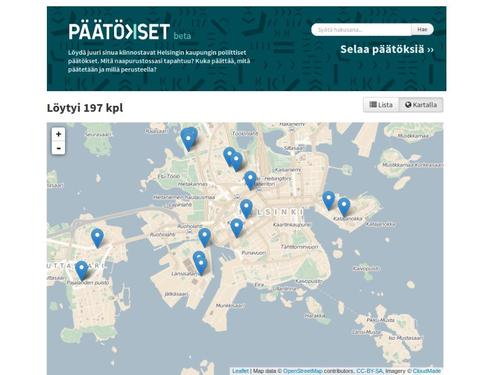This post was collaboratively written by Jogi Poikola and Markus Laine of Open Knowledge Finland, James McKinney of Open North, and Scott Hubli, Jared Ford, and Greg Brown of National Democratic Institute.

At this year’s Open Knowledge Festival – a biennial gathering of open government advocates – there was considerable interest in moving toward greater standardization of APIs (application programming interface) relating to government decision-making processes. Web APIs help promote an open architecture for sharing content and data between communities and applications. Standardization of APIs for government decision-making data would allow tools built by civic innovators or governments to analyze or visualize data about government decision-making to be used across multiple jurisdictions, without needing to re-program the tool to accommodate differing data formats or ways of accessing the data.
Most government decision-making procedures involve similar processes (meetings, requests for public comment, etc.), decision-points (committee hearings, committee meetings, plenary sessions, etc.) and supporting documentation (agendas, draft legislation, information on voting records, etc.). Standardizing the ways that these types of information are structured allows tools for visualizing data about open government decision-making to be used across jurisdictions, as well as facilitating comparison of data and information.
To discuss the state of play with respect to open government decision-making APIs, Open Knowledge Finland, Open North, and the National Democratic Institute organized a session at the Open Knowledge Festival 2014 in Berlin to explore the possibilities for moving toward a global standard for APIs that deal with data on government decision-making.